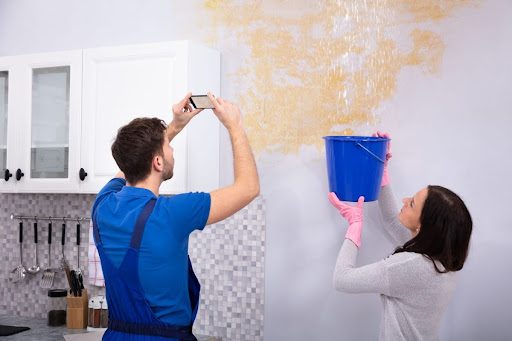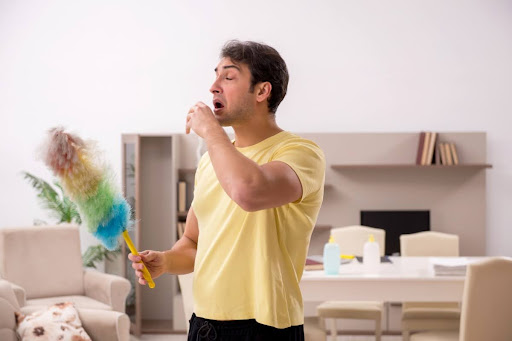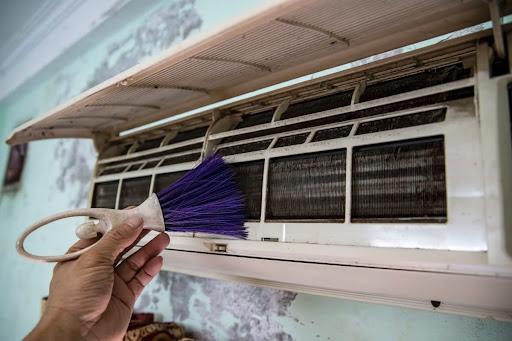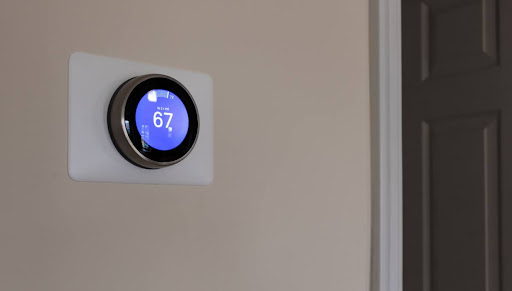How to Find Where a Leak Is Coming From

Have you ever noticed a spike in your water bill or found mysterious water stains on your walls or ceiling? These are, unfortunately, telltale signs of water leaks. If left unchecked, these minor leaks can lead to serious damage — and costly repairs. Most homeowners dread the thought of plumbing issues, but the good news is that finding and fixing leaks doesn’t have to be a formidable task.
With a little patience and the right approach, you can save yourself a lot of trouble and money. In this blog, we’ll guide you through the steps for how to trace water leaks and provide tips on when to call a professional plumber.
Common Signs of Water Leaks
Before you start looking for leaks, it’s important to recognize the signs that indicate you might have a problem. Here are some common indicators:
Unusual Water Bills
One of the first indicators of a water leak is an unexpected increase in your water bill. If your water usage hasn’t changed, but your bill has skyrocketed, it’s a red flag that something is amiss.
Damp or Discolored Walls
Wall discoloration or damp spots can indicate a leak behind the drywall. If you notice paint or wallpaper bubbling or peeling, it’s time to investigate further.
Mold Growth
Mold thrives in moist environments, so the appearance of mold or mildew is a clear sign of excess moisture. This can be due to leaks in your walls, ceiling, or floors.
Water Meter Test
Conducting a water meter test is an effective way to determine if there’s a leak in your plumbing system. Shut off all the water in your home and check the water meter. If the meter continues to move, you likely have a leak.
Musty Odors
A persistent musty smell can be a sign of hidden moisture and mold growth. This is often due to a leak that hasn’t yet been visually identified.
Not All Leaks Are Created Equal
It’s important to recognize that not all leaks are the same. Some leaks are more insidious and harder to detect than others, but each type can cause damage if not addressed. Here’s a deeper dive into different types of leaks and how to handle them:
Dripping Faucets
A dripping faucet may seem like a minor annoyance, but it can waste a significant amount of water over time. Fixing a dripping faucet typically involves replacing worn-out washers or gaskets.
Slow Leaks
Slow leaks, such as those from a pipe joint or under an appliance, can go unnoticed for long periods, leading to hidden water damage and mold growth. When you schedule regular inspections and monitor your water, you can potentially catch these leaks early.
Burst Pipes
A burst pipe is a plumbing emergency that requires immediate attention. Burst pipes can release a large amount of water quickly, causing extensive damage to floors, walls, and personal property. Knowing the location of your main shut-off valve is crucial in such situations to stop the water flow promptly.
Underground Leaks
Leaks in a buried water line or in the pipes beneath your home’s foundation can be challenging to detect. Indicators include wet spots in your yard, unusually green patches of grass, or a sudden drop in water pressure. If you think you’re dealing with leaking pipes, be aware that these require professional leak detection services to locate and repair.
How to Trace a Water Leak
Once you’ve identified signs of a leak, the next step is to trace its source. Here’s a step-by-step guide on how to trace a water leak:
Check the Water Meter
Your water meter is a useful tool in detecting leaks. If you want to know how to find a water leak using this method, follow these steps for a water meter test:
- Make sure all water-using appliances are turned off.
- Record the reading on your water meter.
- Wait for an hour or two without using any water.
- Check the meter again. If the reading has changed, you likely have a leak.
Inspect Visible Plumbing
Examine exposed pipes for signs of moisture, corrosion, or dripping. Common areas include under sinks, around water heaters, and in the utility room.
Test the Toilets
Toilets are common sources of leaks. Fortunately for you, learning how to find where a leak is coming from in your toilet is fairly easy. Add a few drops of food coloring to the tank and wait about 30 minutes without flushing. If the color appears in the bowl, the toilet’s flapper is leaking.
Check Under Appliances
Appliances like dishwashers, washing machines, and water heaters can develop leaks. Look for puddles or signs of moisture underneath these units.
Look for Wall and Ceiling Stains
Inspect walls and ceilings for discoloration or stains. Pay special attention to areas near bathrooms, kitchens, and laundry rooms where plumbing lines are common.
Examine the Attic and Basement
Water can leak through the roof or foundation. Check the attic for signs of water entry, such as stains or mold, and inspect the basement for dampness or water damage.
How to Prevent Water Leaks
Preventing plumbing leaks involves regular maintenance and vigilance. Now that we’ve reviewed how to find where a leak is coming from, here are some tips to keep your plumbing in good shape:
- Regular Inspections: Periodically inspect your plumbing system for signs of wear and tear. Early detection can prevent major issues.
- Replace Old Fixtures: Older fixtures and appliances are more prone to leaks. Consider upgrading to newer, more efficient models.
- Install Leak Detectors: Leak detectors can alert you to the presence of water, helping you catch leaks early.
- Monitor Your Water Bill: Keep an eye on your water bill for any unexplained increases, which can signal a hidden leak.
When to Call a Professional Plumber
Water leaks can be a homeowner’s worst nightmare, but with the right knowledge and tools, you can tackle them head-on. Once you know how to find where a leak is coming from, you can take the proper steps to address the problem and stop a potential disaster in its tracks.
While some leaks can be easily fixed with DIY methods, others require professional attention. If you can’t find the source of the plumbing leak or if it’s causing significant damage, it’s time to call a professional plumber.
Parks Heating Cooling Plumbing & Electrical offers expert plumbing services to help protect your home. From small leaks to major plumbing issues, our team has the experience and tools to get the job done right. Whether you need a simple drain cleaning or an exhaustive water heater repair in Charlotte, NC, we’re here to help.
Contact Our Professional Plumbers in Charlotte, NC!
Knowing how to find where a leak is coming from can save you from costly repairs and damage to your home. Regular inspections and maintenance can prevent many common leaks, but sometimes, professional help is necessary.
If you’re experiencing a leak and need expert assistance, don’t hesitate to schedule a service with Parks Heating Cooling Plumbing & Electrical. We offer an extensive suite of services to meet your needs, from plumbing repairs to drain cleaning in Charlotte. Protect your home and peace of mind by addressing leaks promptly and effectively. Now that you know how to trace a water leak, it’s time to take action. Contact us today!
FAQs | How To Find A Leak
What Are the Common Signs of a Water Leak in My Home?
Common signs of a water leak include unexplained increases in your water bill, the sound of running water when all taps are off, damp spots on walls or ceilings, mold or mildew growth, and reduced water pressure. Detecting these signs early can help prevent extensive damage.
How Can I Check for a Water Leak in My Plumbing System?
To check for a water leak, turn off all water-using appliances and fixtures. Check your water meter and note the reading. Wait for a few hours without using any water and check the meter again. If the reading has changed, you likely have a leak in your plumbing system.
What Tools Can I Use to Find a Leak in My Home?
Several tools can help locate leaks, including a water meter, moisture meter, infrared camera, and leak detection dye. These tools can help pinpoint the leak’s location, whether it’s behind walls, under floors, or in your plumbing system.
What Should I Do If I Suspect a Leak in My Basement?
If you suspect a basement leak, check for water stains on walls, floors, or the foundation. Inspect the area during and after rainfall to identify any seepage points. Seal any visible cracks and consider installing a sump pump or improving drainage around your home to prevent future leaks.
How Can I Detect a Leak in My Sprinkler System?
To detect a sprinkler system leak, look for soggy patches, pooling water, or unusually green areas in your lawn. Turn on each zone and inspect for visible leaks around sprinkler heads, valves, and pipes. Monitor your water bill for unexpected increases that might indicate a hidden leak.
How Do I Find a Leak Behind My Walls?
Finding a leak behind walls can be challenging. Look for signs such as bubbling paint, discoloration, or a musty odor. Use a moisture meter or infrared camera to detect hidden moisture. If you suspect a significant leak, it’s best to contact a professional for accurate detection and repair.
What Are the Common Causes of Slab Leaks?
Common causes of slab leaks include pipe corrosion, poor construction, soil movement, and high water pressure. Signs of a slab leak include warm spots on the floor, cracks in the foundation, or the sound of running water. Professional detection is often required to locate and repair slab leaks.
How Can I Prevent Water Leaks in My Home?
Prevent water leaks by regularly inspecting and maintaining your plumbing system and appliances. Install water leak detectors and seal any visible cracks or gaps. Early detection and maintenance can help prevent significant water damage.
When Should I Call a Professional for Leak Detection?
Call a professional for leak detection if you notice persistent signs of a leak, such as unexplained water bills, visible water damage, or mold growth. Professionals have specialized tools and expertise to accurately locate and repair leaks, preventing further damage to your home.
For superior leak detection and repair services in Charlotte, trust the team at Parks. Schedule a service today by calling (704) 275-1017!
Contact Us Today


Become a Parks Club Plan member Today!
Sign Up for the Parks Club Plan & Receive Guaranteed Service Day or Night.
- Biannual high-performance system checks for HVAC
- Complimentary plumbing video inspection
- Lowered energy usage & lower monthly bills
- Unparalleled protection & peace of mind
- Member-exclusive service discounts & perks







